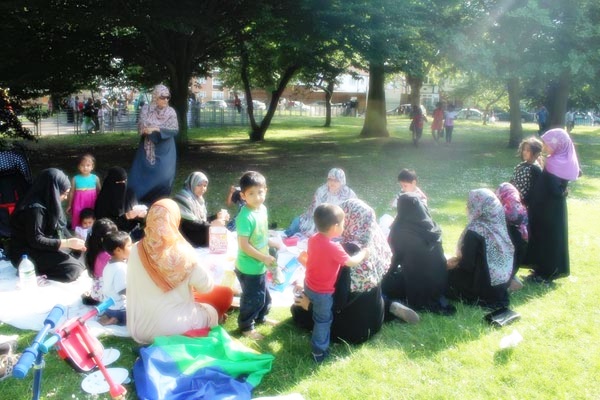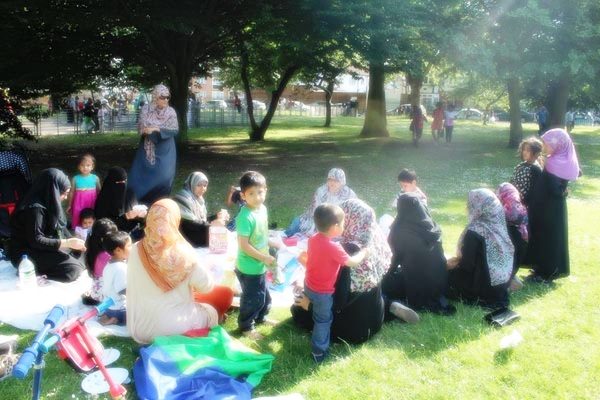

By: Mufti Taqi Uthmani
Source: http://www.themodernreligion.com/
Good treatment of relatives is very pleasing to Allah and earns much merit. It has also been enjoined by the Holy Quran in several places and its merits described, for instance Allah says: “Show kindness unto parents and unto near kindred.” (AI Nisa’: 36)
And “Be careful of your duty towards Allah in Whom you claim your rights and towards the womb that bore you.” (AI Nisa’: 1)
Abu Hurairah relates that our Holy Prophet, may he be eternally blessed, said that “He who believes in Allah and in the Day of Judgment, should treat his relations well.” (Bukhari and Muslim) And according to Anas, the Holy Prophet said that, “He, who desires his earnings to increase and his life to be long, should treat his relations well.” (Bukhari and Muslim)
Good treatment means courteous behaviour, sharing in happiness and grief, and helping them in a lawful manner whenever required.
However some points regarding this good treatment must always to kept in mind.
(1) Some people treat their relatives so well that they do not hesitate to sin for them in wrong belief that this is what has been enjoined on them. To share in sinning with a relative, to recommend them undeservedly, or to get them an employment for which they are not suited etc. are all unlawful in Islam.
Good treatment of relatives does not encompass committing sins for them. Hence when a relative seeks helps or support for any unlawful end, a polite excuse is called for.
(2) Good treatment of relatives is meritorious and rewarding only when it is motivated by the desire to earn Divine pleasure and not by any urge to show off or to keep up with others or to follow customs. Our present day society is shackled by customs and traditions; good treatment of relatives is usually motivated by the desire to save face or out of one-up manship; hence many things not really desired or liked are done due to the force of customs. Consequently, one must not allow himself to be motivated by such thoughts and if any good is done to any relative or kinsman it must be done only to earn Allah’s pleasure, and with happiness and grace; nothing should be done to complete a formality or fulfil a custom.
(3) Since good treatment of kinsmen should be for the sake of Divine pleasure, one must never expect or wait for a good deed in return. Even when the return is not good, one should not abandon good treatment of his relations. Actually this is the acid test that shows whether the good treatment is for Allah or merely for show. Our eternally Prophet has said, “He does not treat his relations well who merely returns a good deed; he who treats them well even when they deny his rights really treats them well”. (Sahih Bukhari)
Umme Kulthum bin Aqabah has related that the eternally blessed Messenger of Allah said, “The best sadaqah is the one given to inimical relatives.” (Hakim and Tibrani: AI Targheeb wa al Targheeb, p.120. volume 4)
Real and true good treatment is the one given even when one’s relations treat him badly; this earns much merit. Abu Hurairah relates “Someone said to the Messenger of Allah ‘I have some relatives whom I treat well, but they deny me my rights; I treat them well, but they treat me badly. I am forbearing, but they quarrel with me’. The Messenger of Allah said ‘If this is really so then you are feeding them hot ashes. Allah shall always give you a helper.’” (Sahih Muslim).
It means that they were acquiring hell fire by their deeds, and they would never harm him; rather he would be helped against them by Allah.



